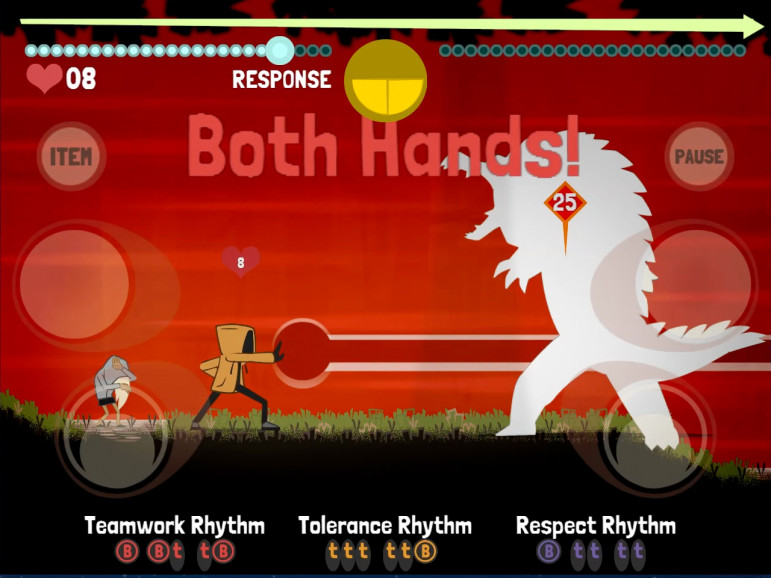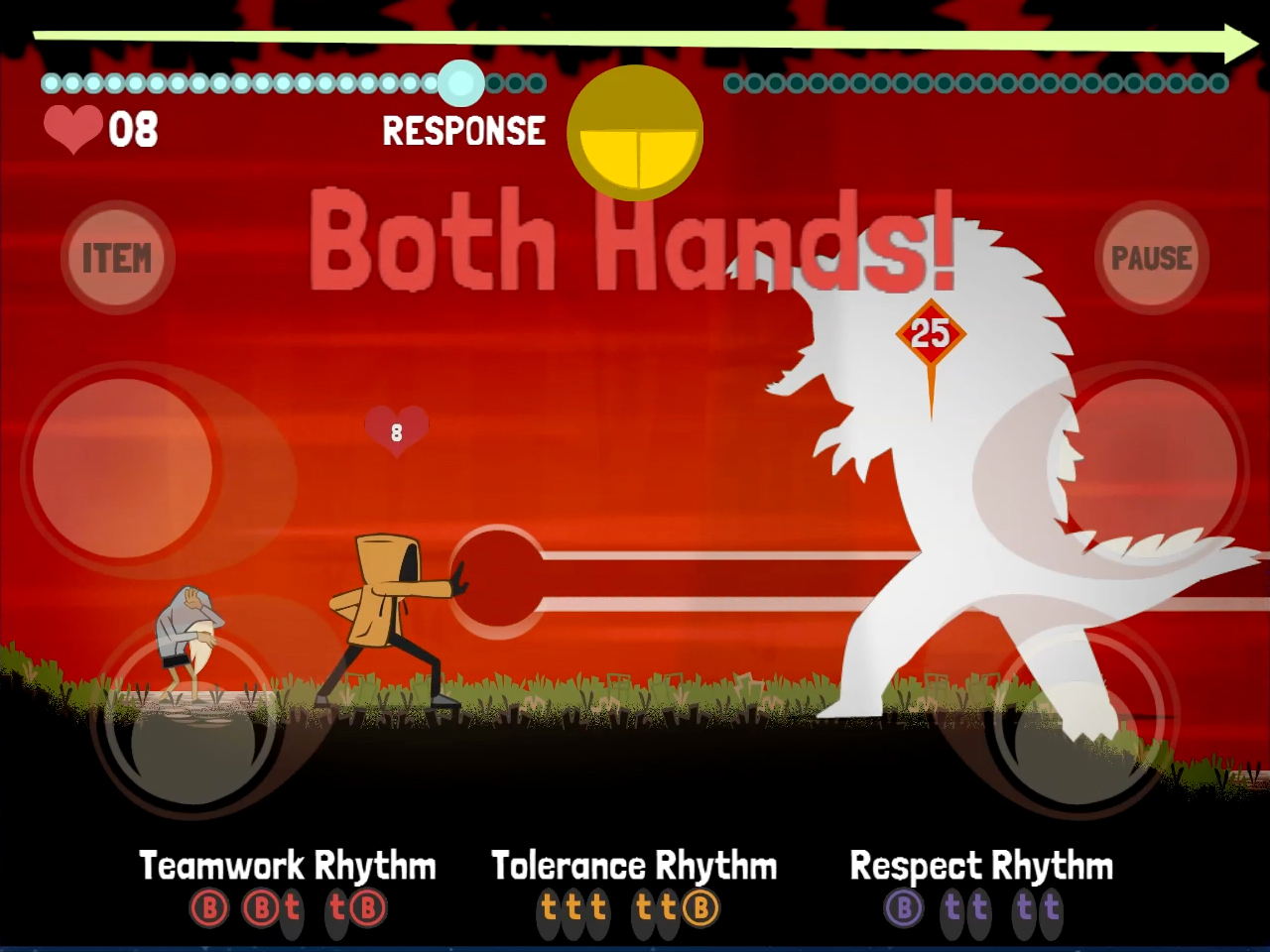
DRUMBEAT Quest rewards the player when they use both hands, encouraging rhythmic play that stimulates and integrates both hemispheres of the brain.
Can a video game teach empathy?
Simon Faulkner of Holyoake, an Australian nonprofit organization, thinks so.
Holyoake has developed the game DRUMBEAT Quest to teach a range of social and emotional skills, and Faulkner sees the game as a resource for the youth service field.
“DRUMBEAT Quest takes the youth-friendly medium of the video game and combines it with themes to explore a range of life skills,” he said.
It is being tried in several schools in Australia, including Helena College High School and SwanView Primary School.
DRUMBEAT Quest is “a conduit to discussion on social and emotional themes for young people generally,” Faulkner said. Social and emotional learning is now part of the curriculum requirements for schools in Australia and New Zealand, he said.
The game can also be used by counselors to provide specialized support for individuals or groups.
To interact with the game, a player beats rhythms on a touch screen or a peripheral drum.
The drumming player enters a fantasy world in which darkness has spread. He or she must bring back light and restore hope. As the player ventures into the unknown, dangers appear. The player confronts monsters, bullies and even the shadow self. He or she must rescue vulnerable friends, avoid peer pressure and figure out which characters to trust.
The player must choose among five rhythms known by the names heartbeat, tolerance, respect, listening and teamwork.
The game was created for kids ages 8-17 and it encompasses 12 40-minute sessions. Each section has time for play followed by a facilitator-led discussion. Unlike most video games, this one encourages face-to-face interaction. It sparks dialogue about the challenges the player faces.
Faulkner said the main attraction for young people seems to be the “rhythmic interface.”
“It rewards the player when they get their rhythm in time with the game’s background track,” he said. “As soon as you do this, the music lifts and you become stronger. … When you lose your rhythm you become vulnerable – and you can imagine the analogies you can draw from this as a counselor.”
He added: “Players must hold their rhythm steady in times of stress to avoid defeat.”
At the outset, players can choose a gender, hairstyle and clothing color – DRUMBEAT Quest is designed for both girls and boys.
The game came out of the DRUMBEAT intervention program, which Faulkner developed for Holyoake in 2003 and now manages. The DRUMBEAT program uses drumming as a tool to engage youth who are at risk of criminal activity, substance abuse or social isolation.
Growing evidence indicates that rhythmic activities can help youth in regulating emotion, according to Holyoake. The rhythmic nature of drumming also creates drama and a cathartic release of emotion.
The DRUMBEAT Quest video game explores the themes of trust, tolerance, emotions, identity, community, bullying, peer pressure, drug use, values, courage, loss, teamwork, harmony, self-belief, violence and forgiveness.
“The major overriding theme is empathy and understanding,” Faulkner said.
Research into the game’s effectiveness has been initiated with support from the University of Western Australia.
Holyoake, based in Western Australia, provides drug and alcohol counseling and support services.
DRUMBEAT Quest will be available on PC, Mac, iOS and Android.


























